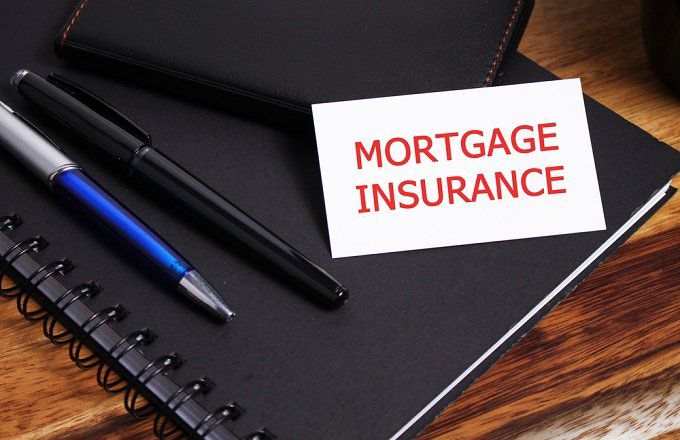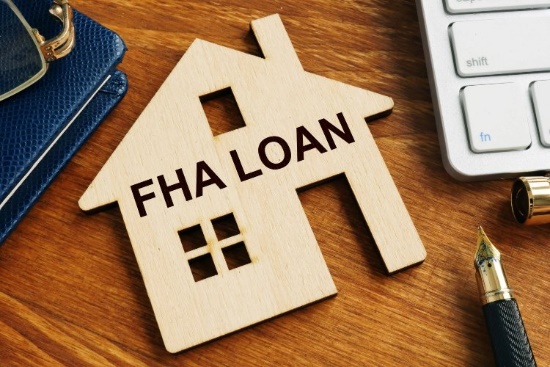There is no other government-backed mortgage program that comes close to the FHA loan's level of popularity. The Federal Housing Administration (FHA) backs loans with small down payments from approved lenders. Borrowers with credit scores of 580 or better are eligible for the low down payment requirements of FHA loans. FHA loans provide several advantages, and those benefits are amplified for homeowners with less-than-perfect credit. Generally speaking, normal FHA rates of interest are relatively low than usual rates for regular mortgages due the government backing. There is a 10 percent down payment requirement for an FHA loan, but borrowers with credit ratings as low as 500 may still qualify. Lender-specific rules and regulations exist.
What Is The Lowest Down Payment Required For An FHA Loan?
The minimal down payment for an FHA loan seems to be either 3.5% or 10%, based on your credit rating. There is a minimum down payment requirement of 3.5% for those with credit scores of 580 and above. Individuals with credit ratings between 500 and 579 will need a 10% down payment. According to Jackie Boies, a senior manager of housing & bankruptcy solutions at Managing Money Intl, a nonprofit debt counseling organization based in Sugar Land, Texas, this equates to a "significant swing" for buying a home of $125,000, with a minimum down payment of $4,375 and a maximum down payment of $12,500, respectively, based on credit rating.
Boies notes that many applicants choose FHA loans because they are less stringent in their requirements, permitting a weaker credit rating and certain faults in the borrower's credit record. FHA loans are popular among first-time buyers because they have lesser requirements, such as a lower minimum credit score and a smaller down payment. All FHA-insured mortgage loans must be acquired through FHA-approved mortgage lenders.
For FHA-Backed Loans, What Do You Need To Know About Mortgage Insurance?
FHA loans demand MIP for borrowers with less than 20% down. Lenders need this extra money because they are looking to take on much more risk because the borrower put down less money initially, and it could hurt them if they stopped paying their loan. There are two mortgage insurance payments associated with FHA loans:
Initial premium for mortgage insurance:

When the borrower receives the loan, they must pay 1.76 percent of the total amount; the premium may be incorporated into the mortgage.
Cost Of Mortgage Insurance Each Year:
Premiums range from 0.46 percent to 1.06 percent per month, with payments split evenly over 12 months regardless of LTV at origination and loan amount for 15- and 30-year terms, respectively.
What Kind of House Can I Afford?
In contrast to personal mortgage insurance for traditional financing, FHA loan applicants with less than a 10 percent down payment are obligated to pay these payments throughout the duration of their mortgage. The only way to get out of having to make payments to them is to either sell the property or refinance into a loan that is not insured by the FHA. "[FHA] loans are intended for low- to modest borrowers and end up coming with distinctive concessions and benefits," says Chris de la Motte, chairman of Simplist, a New York City-based virtual mortgage marketplace. This sort of loan is subject to stringent constraints, such as mandatory mortgage insurance charges and lending ceilings, that are absent from other options.
"The disadvantages of an FHA loan comprise the need for mortgage insurance for the duration of the loan and also the minimal property criteria that must be met," explains Amy Wilemon from Atlanta-based Silverton Mortgage. "For example, the house must be your principal residence and must not need significant repairs."
Gift Requirements for Down Payments on FHA Loans
Gift funds may be used by borrowers of FHA loans to reduce the required down payment amount. Borrowers must follow a number of guidelines. According to HUD, charitable contributions may be made by anybody from friends and family to labor unions and businesses (HUD). There are a variety of sources for down payment assistance, including nonprofit organizations. HUD forbids the following individuals from making a down payment:
- Home builders.
- Sellers.
- Estate brokers and agents.
- Anyone with a financial or personal stake in the home's sale.
Aid for the Down Payment on an FHA Loan

Although the Federal Housing Administration doesn't operate its own down payment assistance program, many states do provide financial aid to first & low-income purchasers. A typical participant in these programs is a borrower who has obtained a loan insured by the Federal Housing Administration.
Bottom line
Because of the minimal down payment and far more lenient credit score standards, FHA loans render homeownership more accessible to borrowers than other types of loans. Mortgage insurance premiums must be paid for the duration of the loan in exchange for this versatility.

All You Need to Understand: How Peloton Makes Money

Tax Traps To Avoid

FHA Requirements for Down Payments

California Retirement: An Overview

How Does The Bid-Ask Spread Function In Trading?

An Introduction to Tax-Free Savings Accounts and How They're Computed

Online Brokers for Free Stock Trading

Beginning of Your Pension

Guide On How To Find and Invest in Low-Volatility Stocks

A Payment Voucher Is Form 1040-V: What Is It?

Best Cities to Buy Real Estate or Rental Property
